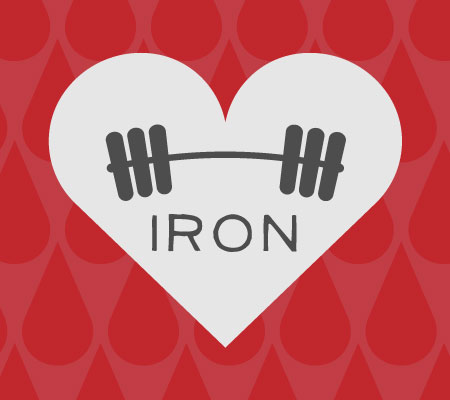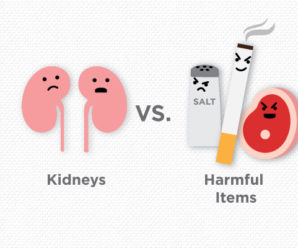
Ulcers, colon polyps and heavy periods may be causing more than just discomfort.
These and other chronic bleeding conditions put you at risk for anemia, a condition where your body has a lower-than-normal number of red blood cells. Chronic bleeding causes you to slowly lose red blood cells that carry oxygen through your body. You’ll feel tired, weak and short of breath if you develop anemia.
Extremely heavy periods that restrict normal activities, blood in your stool or coughing and vomiting blood could be signs of a chronic bleeding condition, and you should see your doctor as soon as possible.
“Sometimes chronic gastrointestinal bleeding may go undetected for a while because your body is leaking small amounts of blood all the time and you don’t notice it,” said Dr. Karen Shulman, a Marshfield Clinic Health System family medicine physician.
Prevent anemia and watch for signs
“The best thing you can do is make sure you take in enough iron so your body keeps making red blood cells as you’re losing them,” Shulman said.
Leafy green vegetables, beef and liver are great natural sources of iron. If you’re a vegetarian, you probably need to take a prescription or over-the-counter iron supplement. Iron supplements are sometimes labeled ‘ferrous sulfate’ at the drugstore. Take only one tablet per day unless your doctor recommends more. Taking vitamin C through food or a supplement at the same time helps your body better absorb iron.
Avoid certain medications and products that can act as blood thinners. Anti-inflammatory medications like aspirin, ibuprofen and naproxen can worsen chronic bleeding. Fish oil and alcohol also have a blood thinning effect.
See your doctor if you notice these symptoms of anemia.
- Fatigue
- Fast heart rate
- Shortness of breath during activity that didn’t cause problems before
- Dizziness or light-headedness
Stop the cycle of chronic blood loss
Anemia will continue to affect you or remain a possibility unless the underlying bleeding condition is treated. Diagnosis and treatment depend on the cause of chronic blood loss.
Heavy periods, colon polyps and ulcers are common causes of chronic blood loss. Hormone changes, diet, medications and family history often play a role in these conditions. Bleeding disorders and blood thinners make symptoms more severe.
Women who have heavy or prolonged periods may benefit from birth control pills, hormone therapy or surgical procedures to reduce menstrual bleeding.
Gastrointestinal bleeding may require acid blocker medications to heal ulcers or a colonoscopy to locate polyps that are leaking blood.
“If you experience unusual bleeding, get to your doctor as soon as possible to figure out what’s causing it,” Shulman said.
For anemia help, talk to a Marshfield Clinic Health System provider.
Schedule appointment Message your provider







Leave a Reply